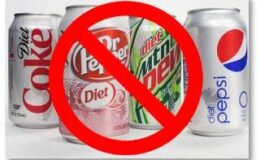Fad diets….do they or don’t they work? Which have you tried? Juicing, Low-fat, Cabbage Soup, HCG, South Beach, Atkins, Nutrisystem, or Zone? Did they work? Were you able to stay on it for long? If you have tried one of these or any others you’re in good company. Me..I think I’ve tried them all. Did I stick to any of them….of course not. Some I stayed on longer than others but in the end I couldn’t maintain or didn’t have the desire to continue. Why? Because I felt deprived and unsatisfied.
Fad diets are just that…a fad. They make claims about weight loss or other health advantages that often have no scientific evidence to back them up. In many of these diets, whole food groups are eliminated or they are so highly restrictive that deficiencies occur. It’s reported that 95% of people fail their diets or should we say diets fail people? In reading about this topic, it seems that many find the word “diet” to be synonymous with “suffering”….a comical thought but most likely not far from the truth. When following a diet, people are forced to either suffer through hunger or are forced to acquire unbelievable willpower. Therefore, it should come as no surprise that these wholly impersonal fad diets fail.
Why Else Don’t They Work?
Another reason fad diets fail relates to what some call your “body weight set point.” It’s influenced by hormones, neurotransmitters (messengers), and your gut microbiome among others. Many studies show that your body weight set point is somewhat constant meaning your weight stays the same despite small changes the calories you take in and those you burn. It’s also known that our bodies are fabulous at holding onto weight during times when we deprive it of calories. This is because your body’s set point has shifted downward and it’s now telling your body to slow down its metabolism to minimize weight loss during these periods of caloric deprivation. This tells us that our bodies adapt in order to survive, but it also tells us that low-calorie diets based solely on deprivation, have short-term effects as this new “set point” limits weight loss. Your body weight set point also keeps you from gaining weight when you eat too much by burning more calories. Unfortunately, this is effect is short-lived.
Many of these fad diets lead to the well-known “yo-yo dieting” which causes you to ultimately weigh more. Yo-yo dieting has been shown to increase the body’s set point. In this case, your brain is telling your body that in order to reach this new equilibrium, you need to weigh more. It then sends control signals throughout your body to slow metabolism. What happens next? You gain weight and this becomes your new normal. The end result is you weigh more than before and it becomes harder and harder to lose weight as your body weight set point is increased each time these diets fail.
What Does Work?
So, what does work when attempting to lose weight? It’s not a “one size fits all” answer. What will work for you is an eating pattern, not a diet, that is customized to fit your body’s needs. One that feeds and nourishes your body with whole, real foods, balances your blood sugar, and supports a healthy gut. Need help determining what’s best for you? Click on “Work with Julie” above and schedule a free 30-minute consultation.
Wishing you Balance,
Julie
Sources
- Farlas MM. Cuevas AM, Rodrigues F. Set-point theory and Obesity. Metabolic Syndrome and Related Disorders 2011; 9:85-89.
- Colmers WF. If there is a set point, how is it set? Canadian Journal of Diabetes 2013; 37.










